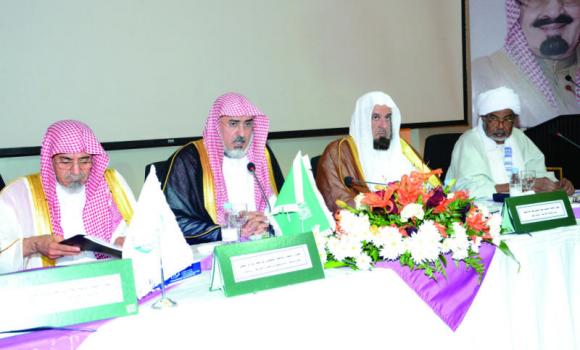
Riyadh, Nov 24: The 21st conference of the Council of the International Islamic Fiqh Academy (IIFA) concluded with a unanimous call to stop Muslim bloodshed irrespective of sect.
The resolution said that sectarian killing is strictly unlawful, as it violates the sanctity of Muslim blood.
The resolution was read out by IIFA’s Secretary-General Ahmad Khaled Babakr.
The event, which was launched in Riyadh on Monday by Imam Muhammad ibn Saud Islamic University’s Rector Suleiman bin Abdullah Abalkhail, also stressed the need to renounce extremism and promote moderation based on the recommendations of the 3rd Islamic Summit in Makkah in 2005.
The five-day event brought together renowned scholars from the Islamic world under the aegis of Custodian of the Two Holy Mosques King Abdullah.
“On the subject of dialogue between the followers of different Islamic sects, IIFA took a number of decisions and recommended emphasis on the necessity of respect for the mothers of believers and companions and all the followers of different Islamic sects,” the resolution said.
It called on the followers of Islam not to slander the Prophet’s wives.
The conference stressed the need to avoid offending other sects through media broadcast.
It called for holding seminars and forums designed to deepen the dialogue between the followers of different Islamic sects and to eradicate barriers that prevent Muslim unity by emphasizing shared values. The seminar also discussed the issue of reckless driving in the Kingdom and stressed the need to comply with traffic regulations. It recommended that authorities in Islamic countries raise awareness on the importance of adhering to traffic regulations.
Participants in the meeting decided to postpone discussing the topic of “jihad” in the context of sectarian strife after studying and listening to research presented on the topic.





Comments
Add new comment